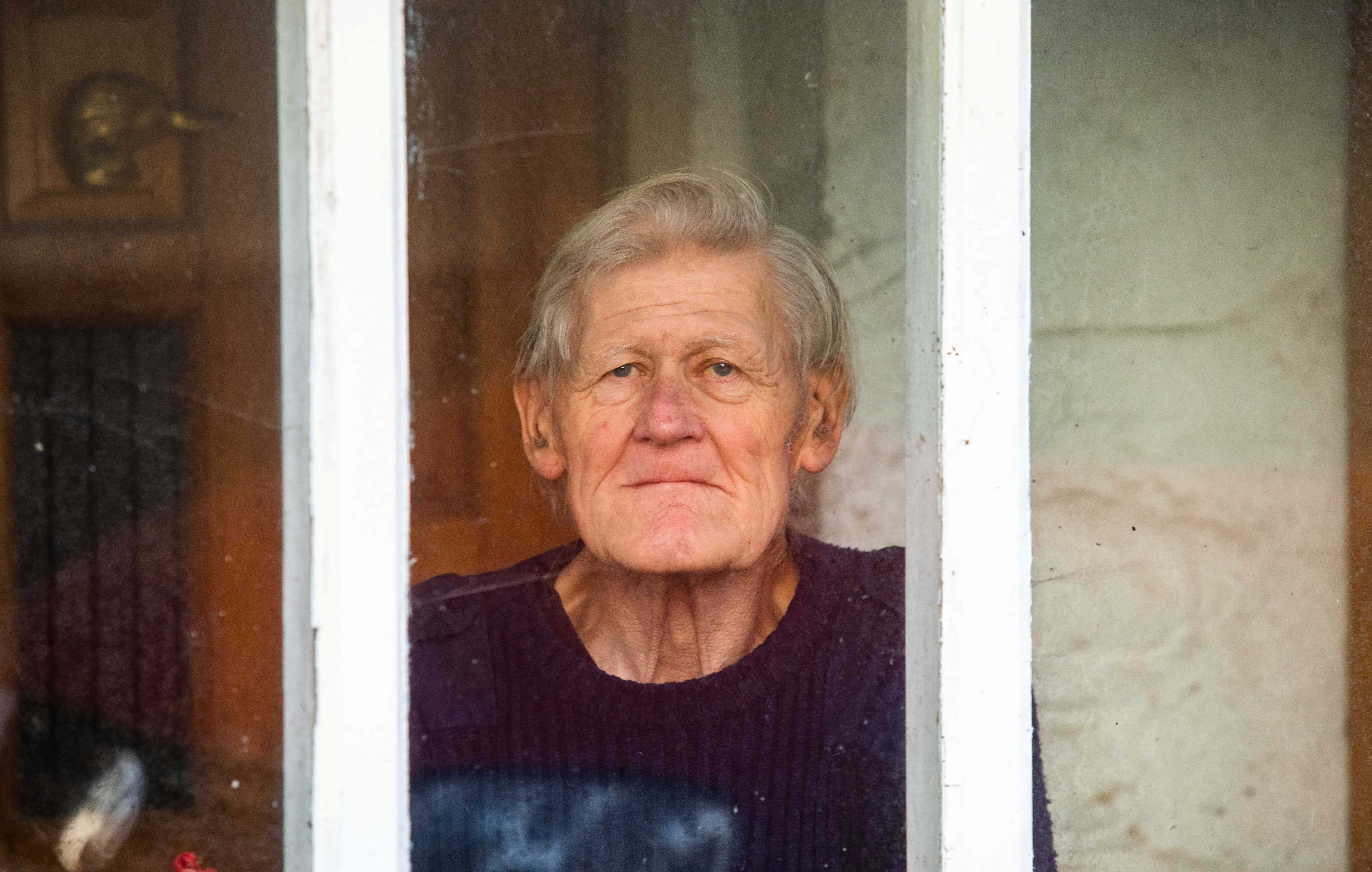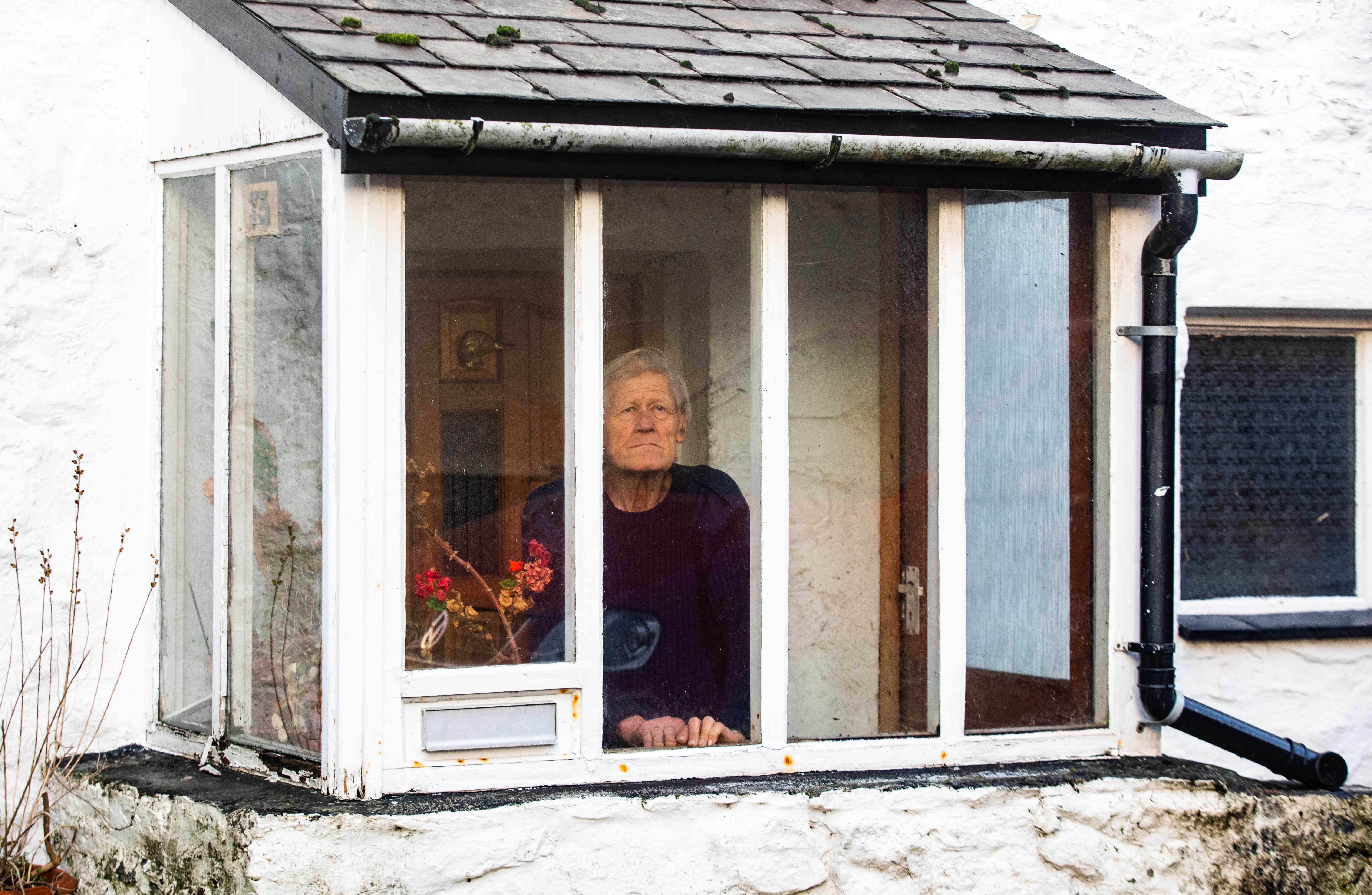‘They were my family’: First British bird flu victim devastated after his ducks are culled
Alan Gosling, 79, is isolating after contracting a form of avian flu from the wild ducks he kept inside his home

Your support helps us to tell the story
From reproductive rights to climate change to Big Tech, The Independent is on the ground when the story is developing. Whether it's investigating the financials of Elon Musk's pro-Trump PAC or producing our latest documentary, 'The A Word', which shines a light on the American women fighting for reproductive rights, we know how important it is to parse out the facts from the messaging.
At such a critical moment in US history, we need reporters on the ground. Your donation allows us to keep sending journalists to speak to both sides of the story.
The Independent is trusted by Americans across the entire political spectrum. And unlike many other quality news outlets, we choose not to lock Americans out of our reporting and analysis with paywalls. We believe quality journalism should be available to everyone, paid for by those who can afford it.
Your support makes all the difference.The first man in the UK to catch a strain of bird flu has been identified after his family revealed he had been keeping wild ducks inside his home.
Alan Gosling, 79, helped look after the local flock of 160 Muscovy ducks in Buckfastleigh, in Devon, and took 20 of them into his house.
His daughter-in-law Ellesha Gosling, 26, said Mr Gosling was ordered to test for the disease after the flock came up positive and were culled.
The father-of-three and retired train driver was ordered to isolate after returning a positive test but is not feeling unwell, officials say.
The birds were culled shortly after Christmas and health authorities say the virus has not been passed to anyone else.
Speaking to The Sun, Mr Gosling said the ducks “were my family” and said he was devastated.
He said: “I’m totally fine myself – I am just upset about what happened to the ducks.
“I’d been with them for more than 20 years so it’s a huge loss. They were my family – they were my life.”

A large number of outbreaks of the H5N1 strain of avian influenza have appeared in birds across the UK recently.
This is reportedly the first human case of a form of this strain in the UK, although there have been cases elsewhere globally. The World Health Organization has been notified.
Mr Gosling’s daughter-in-law said the family are “in shock” at the news, and finding it hard to process. She worries Mr Gosling’s condition could worsen.
She said: “He is often on the phone to us, asking what the doctors have said – but we can’t answer questions we don’t know the answers to.”
The ducks originally lived in a public spot near Mr Gosling’s home. He started to feed them and over several years they became friendly enough to stay at home with him.
Ms Gosling added: “The past couple of weeks have been hell for this family. [Alan] saw all of his ducks killed, and they were like his closest friends.”

She said Mr Gosling first began to notice several ducks becoming sick a few days before Christmas.
The 79-year-old’s infection was identified through what the UKHSA said was “routine monitoring” of anyone in close contact with infected birds.
Professor Isabel Oliver, chief scientific officer at the UKHSA, said: “While the risk of avian flu to the general public is very low, we know that some strains do have the potential to spread to humans and that’s why we have robust systems in place to detect these early and take action.
“Currently there is no evidence that this strain detected in the UK can spread from person to person, but we know that viruses evolve all the time and we continue to monitor the situation closely.”

An Avian Influenza Prevention Zone was declared across the UK on 3 November. All captive birds have had to be kept indoors amid concerns wild birds migrating from mainland Europe during the winter are carrying the disease. There have been dozens of infected premises in the UK, officials say.
The UK’s chief veterinary officer, Christine Middlemiss, said: “While avian influenza is highly contagious in birds, this is a very rare event and is very specific to the circumstances on this premises.
“We took swift action to limit the spread of the disease at the site in question, all infected birds have been humanely culled and cleansing and disinfection of the premises is underway. This is a reminder that stringent cleanliness when keeping animals is important.”
Professor Mike Tildesley, professor in infectious disease modelling at the University of Warwick, said there has “never been any evidence of sustained human to human transmission of H5N1.” He added he did not consider there to be a serious public health risk.
Join our commenting forum
Join thought-provoking conversations, follow other Independent readers and see their replies
Comments